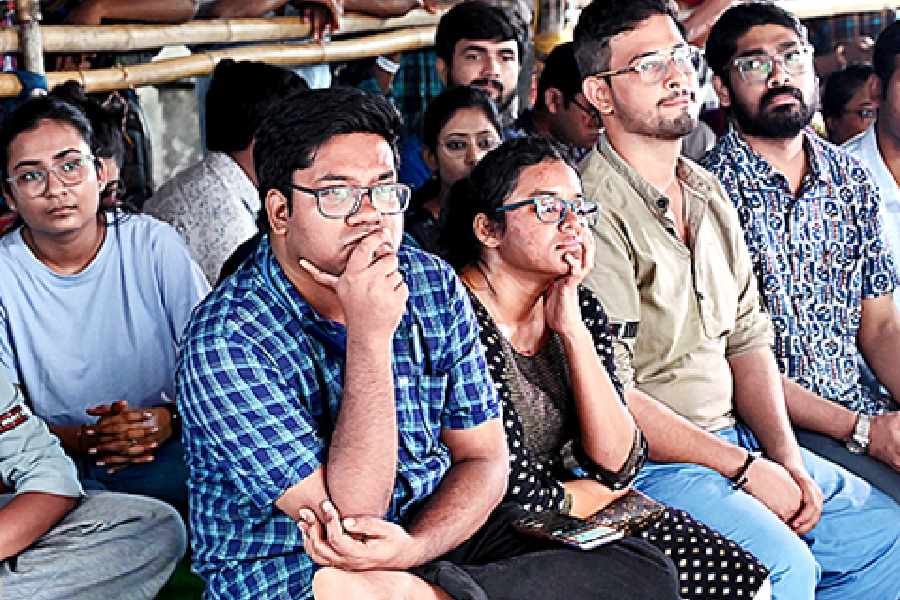The Supreme Court on Tuesday said the Central Industrial Security Force (CISF) was to be posted at RG Kar Medical College and Hospital following Kolkata Police’s failure to protect the hospital from vandals who ran amok on the premises on the night of August 14.
Till late on Tuesday, Kolkata Police continued to guard the hospital. The cops
posted at RG Kar said they did not get any instructions from their bosses to vacate
the premises.
Senior officers at the Kolkata Police headquarters in Lalbazar said they were awaiting a formal order of the apex court, delivered by a three judge bench headed by Chief Justice D.Y. Chandrachud. The formal order was uploaded on the court’s website late on Tuesday evening.
“It is essential to create safe conditions for the interns, residents and senior residents to return to their duties so as to enable them to not only pursue their education but to administer medical care to their patients. The Court has been assured by Mr Tushar Mehta, Solicitor-General, that the Central Industrial Security Force/Central Reserve Police Force shall be deputed in sufficient numbers at the RG Kar Medical College, including the hostels where the resident doctors are staying, to ensure their safety,” the court order says.
The order adds: “With the provision of central security at the Hospital, we hope and trust that the doctors will resume duty at the earliest. Any concerns which they may have in regard to their safety may be placed in the form of an email jointly by the doctors to the Registrar (Judicial) of this Court for further directions.”
Earlier in the day, the Supreme Court came down on the state government for failing to protect the hospital and the students’ hostels on the RG Kar campus on the night between August 14 and 15.
“The West Bengal government could not have been unaware of the fact that when there are protests across the country there is always another segment that will try and disrupt this. The women doctors are assaulted. The police run away from the scene,” the chief justice said in the court.
On the night between August 14 and 15, thousands of people barged into the hospital. They vandalised several departments in two buildings and went to a students’ hostel. At least 15 police persons, including senior officers, were injured.
Thirty-seven people have so far been arrested in connection with the attack, the state told the apex court.
Kolkata Police said on Tuesday they issued summons to 263 people in connection with the vandalism. Of them, the police have questioned 155 people.
Appearing on behalf of an organisation of doctors, lawyer Aparajita Singh presented before the court a representation of complaints by a resident doctor at RG Kar who described how the hostel was under attack that night.
“Acts of wanton vandalisation of the premises of RG Kar Medical College and Hospital took place. A mob... is alleged to have systematically attacked the male and female doctors and the emergency hospital staff and hostels,” Singh said, quoting a doctor who stays in the hostel.
The court was told that of the 700-odd resident doctors at RG Kar, 30 to 40 female doctors and 60 to 70 male doctors have continued to stay there. The rest have allegedly left fearing for their safety.
One of the three judges on the bench said during the hearing: “Obviously the women doctors have left for the reason that they are fearful of their safety. This hospital has to be safeguarded for these doctors to resume duty. Who is going to provide them security on the premises?
“If conditions return to normal at this hospital and if doctors start coming back, this will have an impact on the rest of the hospitals. Therefore, we propose that the CISF provide security at the premises of this hospital.”
Lawyer Kapil Sibal, who appeared for the Bengal government, told the bench that 150 cops were deployed outside RG Kar on the night of the attack. But they were outnumbered by the mob.
Since the vandalism, 120 cops have been guarding the premises daily. Each hostel now has two cops.
The usual deployment at the hospital is much less.










